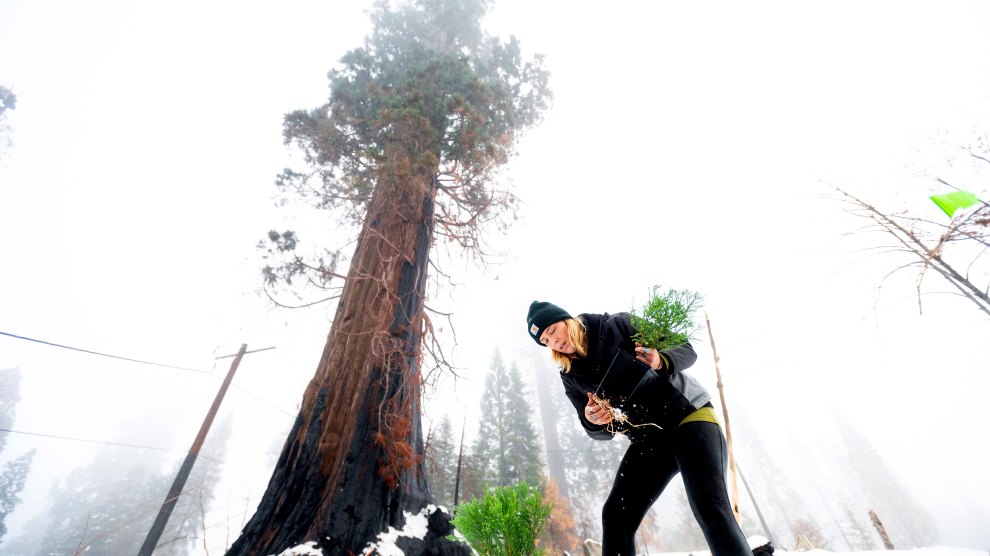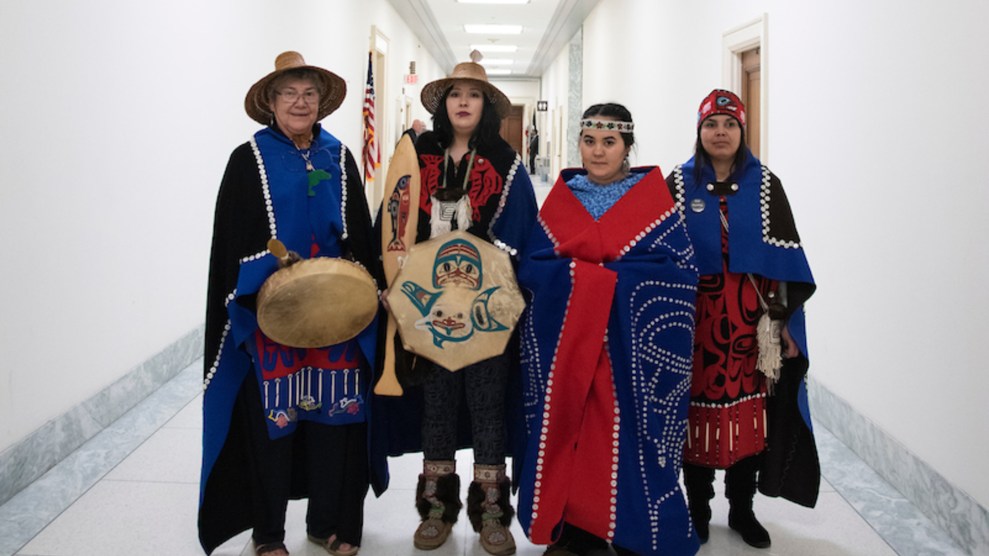
Fangtang Redwood Forest in Xuancheng, Anhui, ChinaCfoto/ZUMA
This story was originally published by the Guardian and is reproduced here as part of the Climate Desk collaboration.
Forest conservation and restoration could make a major contribution to tackling the climate crisis as long as greenhouse gas emissions are slashed, according to a study.
By allowing existing trees to grow old in healthy ecosystems and restoring degraded areas, scientists say 249 gigatons of carbon could be sequestered, equivalent to nearly 50 years of US emissions for 2022. But they caution that mass monoculture tree-planting and offsetting will not help forests realize their potential.
Humans have cleared about half of Earth’s forests and continue to destroy places such as the Amazon rainforest and the Congo basin that play crucial roles in regulating the planet’s atmosphere.
The research, published on Monday in the journal Nature as part of a collaboration between hundreds of leading forest ecologists, estimates that outside of urban agricultural areas in regions with low human footprints where forests naturally exist, they could draw down large amounts of carbon.
About 61 percent of the potential could be realized by protecting standing forests, allowing them to mature into old growth ecosystems like Białowieża forest in Poland and Belarus or California’s sequoia groves, which survived for thousands of years. The remaining 39 percent could be achieved by restoring fragmented forests and areas that have already been cleared.
Amid greenwashing concerns around nature’s role in climate crisis mitigation, the researchers underlined the importance of biodiversity helping forests reach their carbon drawdown potential, warning that planting huge numbers of single species would not help and urgent cuts to fossil fuel emissions were needed.
Rising numbers of forest fires and higher temperatures due to the climate crisis would be likely to reduce the potential, they said. “Most of the world’s forests are highly degraded. In fact, many people have never been in one of the few old growth forests that remain on Earth,” said Lidong Mo, a lead author of the study. “To restore global biodiversity, ending deforestation must be a top priority.”















